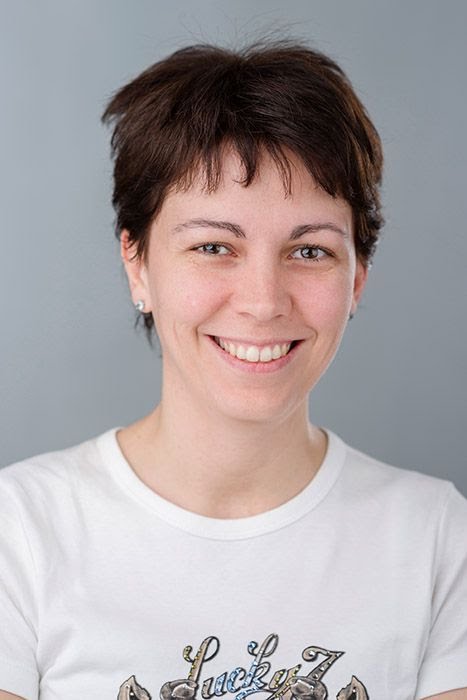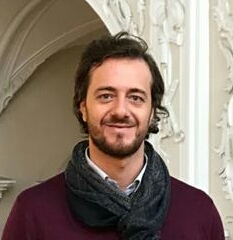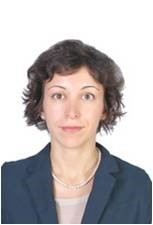Studying at the University of Verona
Here you can find information on the organisational aspects of the Programme, lecture timetables, learning activities and useful contact details for your time at the University, from enrolment to graduation.
Academic calendar
The academic calendar shows the deadlines and scheduled events that are relevant to students, teaching and technical-administrative staff of the University. Public holidays and University closures are also indicated. The academic year normally begins on 1 October each year and ends on 30 September of the following year.
Course calendar
The Academic Calendar sets out the degree programme lecture and exam timetables, as well as the relevant university closure dates..
| Period | From | To |
|---|---|---|
| primo semestre (lauree) | Sep 28, 2020 | Dec 23, 2020 |
| secondo semestre (lauree) | Feb 15, 2021 | Jun 1, 2021 |
| Session | From | To |
|---|---|---|
| sessione invernale | Jan 11, 2021 | Feb 12, 2021 |
| sessione estiva | Jun 7, 2021 | Jul 23, 2021 |
| sessione autunnale | Aug 23, 2021 | Sep 17, 2021 |
| Session | From | To |
|---|---|---|
| sessione autunnale (validità a.a. 2019/20) | Dec 9, 2020 | Dec 11, 2020 |
| sessione invernale (validità a.a. 2019/20) | Apr 7, 2021 | Apr 9, 2021 |
| sessione estiva (validità a.a. 2020/21) | Sep 6, 2021 | Sep 8, 2021 |
| Period | From | To |
|---|---|---|
| Vacanze di Natale | Dec 24, 2020 | Jan 6, 2021 |
| Vacanze di Pasqua | Apr 3, 2021 | Apr 6, 2021 |
| Vacanze estive | Aug 9, 2021 | Aug 15, 2021 |
Exam calendar
Exam dates and rounds are managed by the relevant Economics Teaching and Student Services Unit.
To view all the exam sessions available, please use the Exam dashboard on ESSE3.
If you forgot your login details or have problems logging in, please contact the relevant IT HelpDesk, or check the login details recovery web page.
Should you have any doubts or questions, please check the Enrollment FAQs
Academic staff
 alessandro.barbazeni@univr.it
alessandro.barbazeni@univr.it
 paolo.braguzzi@univr.it
paolo.braguzzi@univr.it
 laura.chiaramonte@univr.it
laura.chiaramonte@univr.it
 stefano.gatti@univr.it
stefano.gatti@univr.it
Study Plan
The Study Plan includes all modules, teaching and learning activities that each student will need to undertake during their time at the University.
Please select your Study Plan based on your enrollment year.
1° Year
| Modules | Credits | TAF | SSD |
|---|
2° Year activated in the A.Y. 2021/2022
| Modules | Credits | TAF | SSD |
|---|
3° Year activated in the A.Y. 2022/2023
| Modules | Credits | TAF | SSD |
|---|
| Modules | Credits | TAF | SSD |
|---|
| Modules | Credits | TAF | SSD |
|---|
| Modules | Credits | TAF | SSD |
|---|
| Modules | Credits | TAF | SSD |
|---|
Legend | Type of training activity (TTA)
TAF (Type of Educational Activity) All courses and activities are classified into different types of educational activities, indicated by a letter.
Type D and Type F activities
| years | Modules | TAF | Teacher |
|---|---|---|---|
| 1° | Future matters | D |
Alessandro Bucciol
(Coordinator)
|
| 1° | Future matters | D |
Alessandro Bucciol
(Coordinator)
|
| years | Modules | TAF | Teacher |
|---|---|---|---|
| 1° | Discovering fair trade | D |
Angelo Bonfanti
(Coordinator)
|
| 1° | Business skills in action | D |
Angelo Bonfanti
(Coordinator)
|
| 1° | Design and Evaluation of Economic and Social Policies | D |
Federico Perali
(Coordinator)
|
| 1° | Public debate and scientific writing - 2020/2021 | D |
Martina Menon
(Coordinator)
|
| 1° | Wake up Italia - 2020/2021 | D |
Sergio Noto
(Coordinator)
|
| years | Modules | TAF | Teacher | |
|---|---|---|---|---|
| 1° | Ciclo di video conferenze: "L’economia del Covid, Verona e l’Italia. Una pandemia che viene da lontano?" - 2020/21 | D |
Sergio Noto
(Coordinator)
|
|
| 1° | Ciclo tematico di conferenze (on-line): “Come saremo? Ripensare il mondo dopo il 2020” - 2020/21 | D |
Federico Brunetti
(Coordinator)
|
|
| 1° | Marketing plan - 2020/21 | D |
Virginia Vannucci
(Coordinator)
|
|
| 1° 2° | Programming in Matlab | D |
Marco Minozzo
(Coordinator)
|
|
| 1° 2° 3° | Data Analysis Laboratory with R (Verona) | D |
Marco Minozzo
(Coordinator)
|
|
| 1° 2° 3° | Data Visualization Laboratory | D |
Marco Minozzo
(Coordinator)
|
|
| 1° 2° 3° | Python Laboratory | D |
Marco Minozzo
(Coordinator)
|
|
| 1° 2° 3° | Data Science Laboratory with SAP | D |
Marco Minozzo
(Coordinator)
|
|
| 1° 2° 3° | Advanced Excel Laboratory (Verona) | D |
Marco Minozzo
(Coordinator)
|
|
| 1° 2° 3° | Excel Laboratory (Verona) | D |
Marco Minozzo
(Coordinator)
|
|
| 1° 2° 3° | Programming in SAS | D |
Marco Minozzo
(Coordinator)
|
|
Public finance (2022/2023)
Teaching code
4S00311
Academic staff
Coordinator
Credits
9
Language
Italian
Scientific Disciplinary Sector (SSD)
SECS-P/03 - PUBLIC ECONOMICS
Period
Secondo semestre (lauree) dal Feb 20, 2023 al May 31, 2023.
Learning objectives
The course aims to provide students with rigorous economic tools for the modern analysis of public policies. We will review the justifications for the economic role of the state, focusing on the role of public expenditure, taxation and regulatory policies. We will supplement the analysis of theoretical models with evidence from Italian public policies. We will focus on the underlying motivations behind public interventions and on the effect of public policies in terms of efficiency and equity. At completion of the course, students should be able to understand and evaluate critically the justifications for the public intervention in the economy, to analyse and assess rigorously public policies on the basis of economic theory, and to master the economic analysis of the main Italian taxation tools.
Prerequisites and basic notions
No prior knowledge is compulsorily required. Basic concepts of Macroeconomics and Microeconomics will be resumed during the course. On these subjects students are invited to follow the relevant bibliographic indications provided by the associated courses that are organized with the course of studies.
Program
The overall course programme (for the 9 ects) covers three parts.
Part I, Intorduction and public expenditure:
- Introduction to main tools for the analysis of public finance.
- Analysis of the public spending components related to market failures (public goods, externalities, social expenditure).
- Investigation of the main issues concerning the economic analysis of social security systems, with particular attention to the problems related to the reform of the Italian pension system.
Part II Economics of taxation:
- Introduction to the economic analysis of taxes.
- Distribution of income, wealth and poverty
- Theories of income (re)distribution
- Equity and efficiency in commodity and income taxation, and the effects of taxation on individual behaviour.
- An introduction to the Italian tax system and the economic analysis of Italian personal income tax.
Part III The economic analysis of the Italian tax system
- Public revenue: economic classifications, compliance, horizontal equity and vertical equity.
- The Italian tax system: institutional and economic characteristics of the main taxes and effects of recent reforms. Income Tax for Individuals (IRPEF), corporate income tax (IRES), taxation of financial activities.
- Indirect taxes. The tax revenues at regional level, for provinces and municipalities
The detailed outline of the course will be provided during the teaching period. Teaching material, exercises, and detailed outline will be made available on the University e-learning website of the course.
For the textbooks please refere to the most updated versions.
Bibliography
Didactic methods
The teaching methods will cover lectures and exercise classes. Tutoring activities will be develloped in parallel with lectures.
Students will be able to access in advance the material related to each lecture in order to stimulate the discussion in class. During the lectures in class attention will be devoted to the discussion of the topics with the students, the analysis of examples and case studies and the solution of exercises.
Learning assessment procedures
The assessment of learning outcomes is carried out through a final written exam on the entire course program which includes multiple choice questions and exercises evaluating the ability to apply technical knowledge, and open questions that focus on assessing the development of critical analysis and the ability to connect between the topics analyzed in the course.
Students will also have the opportunity to complete theit evaluation through a mid term exam on the first part of the course and a final exam on the second part of the course that will take place in the first exam date scheduled for the course in the exam session for the semester where the course is delivered. Both exams will receive an equal weight in the evaluation.
Evaluation criteria
The exam questions will verify the ability to apply the technical knowledge developed during the course, the development of critical analysis and the ability to relate between them the topics analyzed in the course.
A specimen the exam will be provided on the e-learning website of the course.
Criteria for the composition of the final grade
The overall grade will result from the sum of the evaluations of the questions presented in the written test. The weight of the various questions will be indicated in the exam.
For those who take the partial exams, each of the two exams will receive equal weight in determining the overall grade.
Exam language
italiano
Career prospects
Module/Programme news
News for students
There you will find information, resources and services useful during your time at the University (Student’s exam record, your study plan on ESSE3, Distance Learning courses, university email account, office forms, administrative procedures, etc.). You can log into MyUnivr with your GIA login details: only in this way will you be able to receive notification of all the notices from your teachers and your secretariat via email and soon also via the Univr app.


 045 802 8292
045 802 8292



























